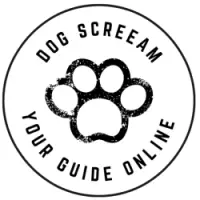Can dogs have vanilla? Vanilla is found in many different foods, drinks, and medicines. It used to be popular as a natural remedy for nausea with humans, but since the late 1990s, over-the-counter versions are no longer available.
The FDA stated that vanilla was not safe because of potential side effects, including irregular heartbeat, leading to death. However, it is still possible for your dog to ingest some vanilla-containing products or food items that you might want to avoid giving them in the future if they are sick.

What is in a bottle of vanilla extract?
Vanilla extract is an alcohol-based solution that contains vanilla flavorings from either the vanilla bean or artificial sources, along with other substances like sugar, water, alcohol, and corn syrup. It can be added to foods or beverages for flavor but should only be given to your dog in reasonable amounts (less than 10 ml) if they are ill since it may help relieve nausea. Other ways of giving vanilla extract include a capsule you put in their food where the extract will dissolve upon digestion releasing its benefits over time.
How To Give Your Dog Vanilla
Introducing or giving your dog vanilla can be an advantageous experience. While the humans in the household may enjoy it too, this is not about you. This is about rewarding your dog with one of the best things on Earth.
Before you give your dog vanilla, make sure to reward him for his good behavior. Your dog will need to understand that good behavior is rewarded with vanilla at first, but eventually, he won’t even realize he’s getting anything other than pure goodness. By following these simple steps, you’ll soon have a great canine buddy who looks forward to receiving his tasty treat.
First, introduce your pup to its new flavor slowly. Dogs usually take to vanilla well compared to other flavors due to how subtle it is. You can now give your dog vanilla without him knowing it if you want to be particularly evil. This will help the bonding process, as dogs instinctively trust those who offer them food.
A great way to do this is by getting an ice cube tray and filling each section with some water and some vanilla extract. Please wait for the ice cubes to freeze before giving them to your pooch. Not only will he love cracking through the chilly goodness, but you’ll also have his undivided attention during this special time together. Just make sure not to leave these around since they are prone to melting.
Another great way to introduce your dog or puppy to vanilla is by taking them out for their first car ride. This should be fun for both of you, so make sure to get in some quality bonding time with your pal before getting back on the road.
Why is vanilla potentially toxic to canines?
Although most cases of poisoning from vanilla are due to ingestion of products containing high amounts of concentrated forms of vanilla such as pure vanilla extract, which is used as a flavoring agent in foods and drinks, there have been reported incidences from dogs ingesting small amounts from products they shouldn’t be eating such as baked goods, ice cream, and skunk oil. This shows that xylitol, an artificial sweetener found in some baked goods, can cause toxicosis, although it is not recommended for dogs to be eating any amount of it. However, acute (sudden) vanilla poisoning could occur after ingesting high concentrations of more than 10 ml orally.
What to do if your dog drank vanilla extract?
If your pet has ingested moderate amounts of vanilla extract (less than 10 ml), they may vomit within 30 minutes to 2 hours after ingestion. Still, they should return to normal fast, especially if given a small meal. If they have ingested large amounts, you will need to call a veterinarian immediately since they might become lethargic. Their heart rate will decrease, which is dangerous in itself, causing them to look dull and tired with dilated pupils weak pulse. They may also start to show signs of abdominal pain such as vomiting, diarrhea, and excessive salivation. Other clinical signs include dehydration, depression, and weakness which could lead to shock or even death if not treated promptly by a veterinarian who will perform diagnostic tests such as blood work and x-rays to determine the extent of damage done.
Can your dog eat foods with vanilla?
There are two reasons why vanilla is used in so many different types of human foods: it has a pleasant smell and taste and acts as an inhibitor to prevent other ingredients from tasting bad when mixed. This makes it extremely popular in almost any type of food – especially desserts – but most experts agree that it is safe for most dogs to eat.
However, keep in mind that most experts agree that it is safe for most dogs to eat vanilla, but they stress that the quantity of vanilla your dog eats is extremely important. Some experts claim that too much vanilla can be harmful to dogs; therefore, you should only give your pet foods containing vanilla if it will be less than 1% of their daily food intake. This equates to about 0.1 g (0.004 oz) per pound of body weight per day, which isn’t very much considering how little dogs need to survive.
So there’s good news and bad news when it comes to feeding your dog foods with vanilla. The good news is that most dogs can safely eat foods with this ingredient, but the bad news is that you have to pay very close attention to the quantity of vanilla your dog consumes. This means you’ll need to check their food labels thoroughly before serving any food with this ingredient.
Vanilla Health Benefits For Dogs
In small amounts, dogs can enjoy the taste of vanilla which has a whole list of health benefits that can benefit them in many ways:
1. Helps Relieve Arthritic Pain – Vanilla extract has been shown to help relieve arthritic pain in dogs and humans because it contains magnesium and vanillin- the main components that regulate calcium metabolism and reduce inflammation. This means your dog will be able to move more freely without feeling so much discomfort from their joints aching all the time.
2. Relieves Itching – Vanilla is an effective natural itch reliever- rub a little on your dog’s skin to give them relief from dry, itchy patches or rashes caused by allergies. A study shows that vanillin, one of the main components of vanilla, stopped itching completely in some people! This is great news for your pooch if they develop skin irritations due to seasonal allergies or flea bites.
3. Great Source Of Antioxidants – Many people use vanilla extract as a natural way to sweeten their food. But did you know that vanilla extract is also full of antioxidants? Antioxidants help prevent free radical damage, which can lead to premature aging and even cancer. Vanilla extract also reduces stress hormones in dogs and humans because it contains such high levels of vitamin B6 and magnesium. Magnesium helps reduce stress by stimulating serotonin production, which elevates mood.
4. Helps Eliminate Bad Breath – One study shows that smelling vanilla can help boost blood flow to the brain, which helps eliminate bad breath since more oxygen and nutrients reach the source of the problem. Just rub a little bit of vanilla on your dog’s gums or add a few drops to their water bowl for them to enjoy.
5. Prevents Anemia – Vanilla contains high levels of vitamin B6, which is essential for maintaining a healthy immune system and preventing anemia.
6. Provides Natural Anti-Inflammatory Benefits – Did you know that vanilla extract can improve bone strength? Studies show that women who drank three cups of vanilla-flavored tea daily for weeks had stronger bones than those who drank plain green tea.
9. Helps With Skin Allergies – Vanilla is an effective natural remedy for skin allergies because it contains antioxidants that can kill bacteria and nourish the skin to prevent irritations from occurring.
Is It Safe To Give Dogs Vanilla?
It is safe if your dog ingests small amounts, but it will depend on their size and breed since smaller dogs are at riskier than bigger breeds with a higher toxicity threshold. It will also depend on the concentration of the vanilla extract since the higher the concentration, the more dangerous it will be. It is always best to consult a veterinarian before giving your dog any new food or drink especially vanilla.
Conclusion
Vanilla has many health benefits for dogs, but you should always consult with a veterinarian before giving anything new to them. They are not known for having a high threshold for toxicity and could become lethargic fast after ingestion if given large amounts. If you have administered small amounts of vanilla extract to your pet, watch out for signs of distress mentioned earlier in this article, including abdominal pain, dehydration, depression/weakness, vomit, etc. Give them plenty of fluids and contact a vet right away if their condition doesn’t improve.
